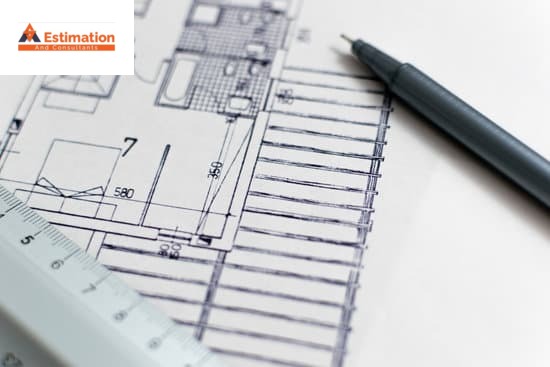Large-scale construction projects involve multiple moving parts, from material procurement to labor management and regulatory compliance. Without accurate cost planning, these projects can quickly spiral out of control, leading to budget overruns, missed deadlines, and financial losses. This is where commercial estimating services come into play.
Professional estimators use industry expertise, data-driven insights, and advanced software tools to ensure that projects are efficiently planned, accurately budgeted, and smoothly executed. In this article, we’ll explore how commercial estimating services streamline large-scale construction projects, improving cost efficiency, reducing risks, and enhancing project management.
What Are Commercial Estimating Services?
Commercial estimating services provide businesses, contractors, and developers with precise cost estimates for large-scale construction projects. These estimates cover every aspect of the project, including:

- Material costs (concrete, steel, glass, electrical wiring, insulation, etc.).
- Labor costs (wages, benefits, union fees, and subcontractor expenses).
- Equipment and machinery (rental, purchase, maintenance, and operational costs).
- Permits and regulatory fees (zoning, environmental impact, safety inspections, etc.).
- Contingency funds (for unforeseen expenses, price fluctuations, and project modifications).
By analyzing these factors, estimators provide a comprehensive financial roadmap, ensuring the project stays on track and within budget.
The Role of Estimating Services in Large-Scale Construction Projects
1. Enhancing Budget Accuracy and Cost Control
One of the biggest challenges in large-scale construction is cost overruns. Miscalculations in material pricing, labor wages, or equipment rentals can lead to millions of dollars in unexpected expenses.

Commercial estimators prevent this by:
- Conducting detailed cost analysis based on up-to-date market prices.
- Identifying potential cost-saving alternatives without compromising quality.
- Ensuring budget transparency by breaking down all expenses into itemized reports.
For example, a high-rise commercial building may require 50,000+ tons of steel. A minor miscalculation in steel pricing per ton can lead to significant financial discrepancies. By providing accurate estimates, commercial estimating services prevent such costly errors.
2. Improving Project Planning and Timeline Management
Large-scale projects require careful coordination of materials, workforce, and equipment. A poorly planned schedule can result in:
- Material delivery delays, leading to idle workers and increased labor costs.
- Equipment shortages, forcing contractors to rent machinery at higher rates.
- Workforce bottlenecks, where subcontractors are left waiting due to scheduling conflicts.
Estimating services help streamline project planning by:
- Aligning cost estimates with project timelines to ensure smooth cash flow.
- Coordinating material deliveries to avoid shortages or excess inventory.
- Providing labor scheduling insights to optimize workforce efficiency.
For example, if a hospital construction project requires specialized medical-grade materials, an estimator can factor in supplier lead times and recommend the best procurement strategy.
3. Reducing Financial Risks and Unforeseen Expenses
Construction projects face a range of unpredictable risks, including:
- Sudden material price fluctuations (e.g., rising steel or lumber costs).
- Labor shortages and wage increases due to market demand.
- Regulatory changes requiring additional permits or safety measures.
- Weather-related delays increasing labor and equipment costs.
A detailed commercial estimate includes a contingency fund, usually 5-10% of the total budget, to cover such risks. Professional estimators also conduct risk assessments to identify potential financial threats before they become problems.
For example, if a commercial office tower is being built in a hurricane-prone region, an estimator may factor in additional structural reinforcements, ensuring the project remains compliant and financially prepared.
4. Supporting Competitive Bidding and Contract Negotiations
For construction companies bidding on large-scale projects, a well-prepared estimate can make or break a deal. A low bid may win the contract but lead to financial losses, while a high bid may lose the contract altogether.

Estimators help contractors submit competitive yet profitable bids by:
- Analyzing historical project data to determine realistic pricing.
- Identifying cost-cutting opportunities without affecting quality.
- Ensuring compliance with industry standards and contract requirements.
For instance, if a company is bidding for a 100,000-square-foot warehouse project, an estimator can benchmark costs against similar past projects to determine the most cost-effective and competitive bid.
5. Maximizing Resource Efficiency and Cost Savings
Efficient resource allocation is essential in large-scale construction. Wasted materials, inefficient labor management, and poor equipment utilization can inflate costs and cause delays.
Estimating services improve efficiency by:
- Optimizing material procurement (ordering the right quantities at the right time).
- Minimizing labor downtime by ensuring smooth task scheduling.
- Maximizing equipment usage to avoid unnecessary rental costs.
For example, in a large hotel construction project, an estimator may recommend bulk purchasing of tiles and fixtures at discounted rates, resulting in significant cost savings.
6. Ensuring Regulatory Compliance and Legal Preparedness
Large-scale projects must adhere to local, state, and federal regulations. Failing to comply can lead to:
- Costly fines and legal disputes.
- Project shutdowns or delays.
- Rework expenses due to non-compliance.
Estimators factor in all compliance costs, including:
- Environmental impact assessments (for eco-friendly construction).
- Zoning and building permits (ensuring project legality).
- Occupational safety requirements (to avoid legal liabilities).
For instance, if a shopping mall project requires fire safety measures, an estimator ensures these costs are included in the budget before construction begins, preventing financial surprises.
How to Choose the Right Commercial Estimating Service
To maximize the benefits of commercial estimating, businesses should choose an experienced and reliable service provider. Here’s what to look for:

1. Industry Experience and Specialization
Select an estimator with a proven track record in large-scale commercial projects, such as:
- High-rise buildings.
- Industrial facilities.
- Hospitals and healthcare centers.
- Retail complexes and shopping malls.
2. Use of Advanced Estimating Software
Modern estimating relies on tools like RSMeans, PlanSwift, CostX, or ProEst, which provide:
- Real-time cost data for materials and labor.
- Automated quantity takeoffs to reduce errors.
- 3D modeling for project visualization.
3. Transparent and Detailed Cost Breakdown
A good estimate should include:
- Itemized material and labor costs.
- Justification for pricing calculations.
- Potential risks and cost-saving recommendations.
4. Positive Client Reviews and Testimonials
Check client feedback to ensure the estimator has a reputation for accuracy, reliability, and professionalism.
Conclusion
Commercial estimating services play a critical role in streamlining large-scale construction projects. From accurate budgeting and risk reduction to efficient resource management and compliance, professional estimators help businesses execute projects on time, within budget, and without financial surprises.
If you’re planning a large-scale commercial project, partnering with an experienced estimating service can save time, cut costs, and ensure long-term success. For accurate, reliable, and cost-effective commercial estimating services, trust AS Estimation & Consultants—helping businesses streamline construction projects with precision. Don’t leave your project’s financial planning to chance—invest in professional commercial estimating today!

